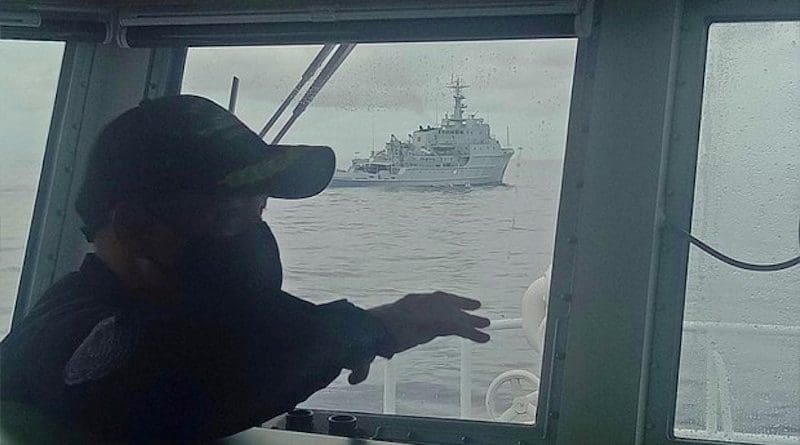Philippines-China Bilateral Consultative Mechanism (BCM) – Analysis
Consultation and not militarization can unlock peace in the South China Sea
On 23-24 March 2023, China and the Philippines will hold in Manila the 7th meeting of the Bilateral Consultative Mechanism (BCM) in the South China Sea, back-to-back with the 23rd Philippines-China Foreign Ministry Consultations (FMC).
According to the Philippine Department of Foreign Affairs (DFA), the back-to-back meetings of the FMC and the BCM highlight the goodwill of both parties “to dialogue and move forward on practical measures”.
Agenda of the FMC will focus mainly on the overall nature of Philippines-China bilateral relations and on various areas where to two countries can cooperate. The BCM, on the other hand, will cover discussions on maritime cooperation and confidence building measures.
The Philippines and China established the BCM during the 2016 state visit to China of then newly-elected President Rodrigo R. Duterte. In this visit, Duterte, who pursued a paradigm shift to China as part of an independent Philippine foreign policy, met President Xi Jinping. Both leaders agreed to continue discussions on confidence-building measures to increase mutual trust and confidence and to exercise self-restraint in the conduct of provocative activities in the South China Sea.
Both countries held their First BCM in Guiyang, Guizhou Province, China on May 19, 2017. The BCM contributed enormously to the warming of friendly relations between the Philippines and China severely damaged by the decision of 2016 decision of the International Arbitral Tribunal (IAT). The IAT handled the Philippine legal case against China lodged during the administration of the late President Benigno Simeon Aquino III.
Improvements in Philippines-China relations initiated by President Duterte helped in calming the overall security situation in the South China Sea under his first year of presidency.
The first BCM was a great milestone in Philippines-China relations as it opened practical channels of communication between the two countries in dealing with the whole gamut of issues in the South China Sea. Since then, the two countries held the BCM twice annually before the onslaught of the COVID-19 pandemic in 2020.
Before the pandemic, the most important meeting was the 5th BCM held on 28 October 2019 in Beijing. During the 5th BCM, the Philippines and China reaffirmed “the importance of the BCM as a platform for regular dialogue that can play a significant role in the enhanced and stable development of bilateral relations and peace and stability in the South China Sea.”
The significant outcome of the 5th BCM was the creation of the Working Group on Political Security, Fisheries Cooperation, and the Working Group on Marine Scientific Research and Marine Environmental Protection. These two working groups were deemed important for the strict implementation of the DOC and the immediate conclusion of COC. Both the DOC and COC are guided by the principle of “duty to cooperate” mandated by the 1987 United Nations Convention on the Law of the Sea (UNCLOS).
Amidst the COVID-19 pandemic, the Philippines and China conducted the 6th BCM virtually on 21 May 2021. The two parties exchanged views on 1) The current situation in the South China Sea; 2) Maritime issues between the two countries; and, 3) Ways to further expand exchanges and cooperation on maritime search and rescue, fisheries, ecological conservation, scientific research, and other areas like joint development and maritime law enforcement cooperation.
Thus, the holding of 7th BCM under the administration of President Ferdinand “Bong Bong” Marcos Jr. is essential to sustain the gains of the bilateral process in coming out with all possible approaches to peacefully manage territorial conflicts and maritime jurisdictional disputes in the South China Sea.
Though the BCM is just a consultative mechanism and not a formal negotiation platform, it can, however, contribute towards peaceful resolutions of conflicts through confidence building measures that the BCM have provided. Through the BCM, the Philippine government was able to directly deal with China on the many ramifications of issues in the South China Sea.
The BCM allowed both countries to squarely discuss with each other their existing differences as well as their common interests on the South China Sea. The BCM also provided greater clarity and transparency on some details of their respective national positions that were made known candidly to each other, unlike before where details of their national positions were deliberately kept secret away from each other.
As such, the BCM has also provided the needed platform for mutual trust building between the Philippines and China. The BCM also offers an important mechanism for conflict avoidance and preventive diplomacy in the South China Sea that other parties need to advance.
Instead of militarization through arms-racing behavior in the South China Sea like the development of nuclear powered submarines or by allowing an extra-regional power to have a military access in Philippine territories, the BCM can lead to the de-militarization of the South China Sea dispute through direct peaceful consultations.
Consultation and not militarization is the key to unlock peace, friendship and cooperation in the South China Sea.
*Dr. Rommel C. Banlaoi is the Chairman of the Advisory Board of the China Studies Center of New Era University, member of the Board of Directors of the China-Southeast Asia Research Center on the South China Sea, member of the Management Board of the World Association for Chinese Studies and President of Philippines-China Friendship Society. He also served as President of the Philippine Association for Chinese Studies from 2008 to 2022. He was designated as Deputy National Security Adviser in July 2022, but he has returned to his usual academic work as an independent national security expert and an international studies scholar.

